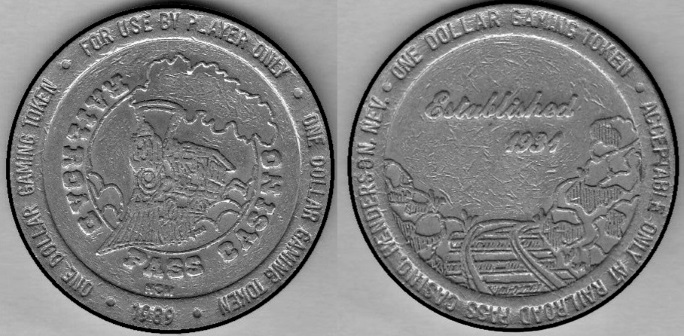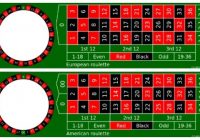|
Listen to this Gambling History blog post here
Getting your Trinity Audio player ready...
|

1931
Twenty-six miles southeast of Las Vegas, the United States government, in 1931, developed Boulder City as the place to house men working on the Hoover Dam (originally Boulder Dam). The Bureau of Reclamation required the town to be a model community that afforded a clean living environment.
To achieve this, federal legislators officially designated 12 square miles around Boulder City as a federal reservation. This allowed it to prevent gambling, drinking and prostitution near the job site, as federal officers would have jurisdiction and could control the area.
However, that same year, Nevada legalized gambling. In July, a Los Angeleno, F.J. Warren, procured a gambling license, one of the first granted in the state, for a 6,000-square-foot casino and dance hall. He named it the Railroad Pass Club after the segment of rail that connected Union Pacific’s main tracks to those near the dam.
It was to be built roughly five miles from Boulder City, and that area fell into the exclusive U.S. zone. Despite the geographical conflict, construction began on Warren’s enterprise the following month.
It turns out, the location of Warren’s entertainment destination was a 20-acre strip of land for which someone, O.D. Johnson, already had a patent. The federal government couldn’t incorporate in its reservation any acreage of that kind without an act of Congress.
In the end, it didn’t pursue legislation to seize that land, thereby blocking the casino and eliminating that source of temptation for Boulder City residents.
Plan Comes to Fruition
On August 1, the manager, O.T. Buck, opened the Railroad Pass Club, which boasted slot machines, 21/blackjack, craps, roulette, bingo and poker. With gambling, alcohol, food and dancing, it drew dam workers and their families.
“Two of the more notorious [‘resorts’] were the Railroad Pass Club and Texas Acres,” Wm. Joe Simonds wrote in “The Boulder Canyon Project.” “These clubs, surrounded by tents and cabins where prostitutes plied their trade, had vicious reputations, and beatings, knifings and shootings were common.
“When the night was over and the last dollar spent, carloads of drunken workers would race back to Boulder City trying to beat the clock and return before the start of the day shift. Because of the many accidents on the road between Boulder City and Las Vegas, the highway became known as the Widowmaker.”
To gain entry into the facility, guests had to know and provide the password, which was “gaiety.” Advertising materials highlighted that the temperature inside was a balmy 70 degrees. Electric fans and damp sheets hung from the ceiling cooled the building.
Now in 2017
Eighty-five years later, after changes in ownership and some building remodels, the business still exists, in the same location, what today is the City of Henderson’s southeast corner, at 2800 S. Boulder Highway. The name — Railroad Pass Hotel & Casino — still reflects its connections to the past. Guests can discover just what those are, in the on-site museum, the Heritage Room.





